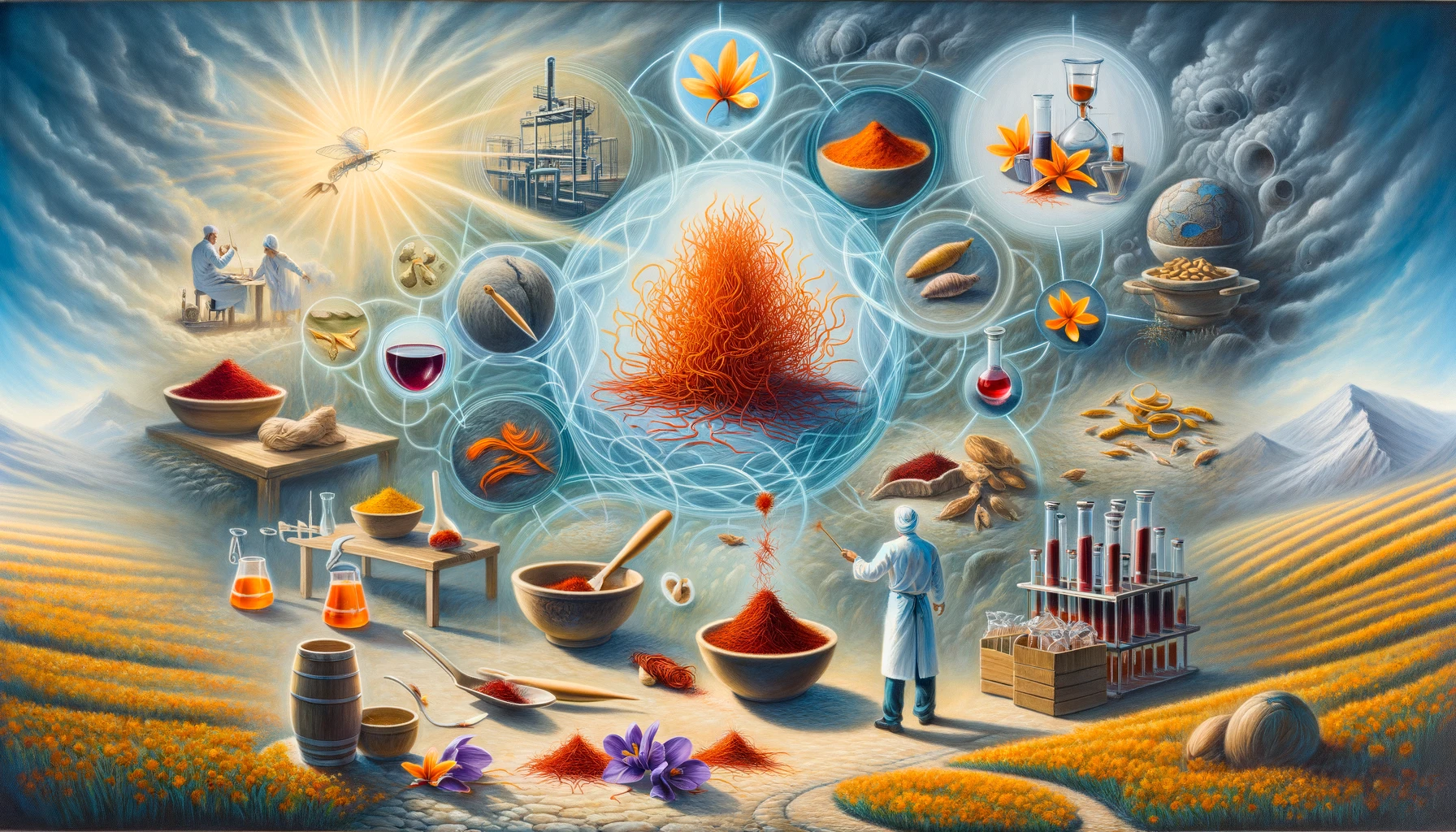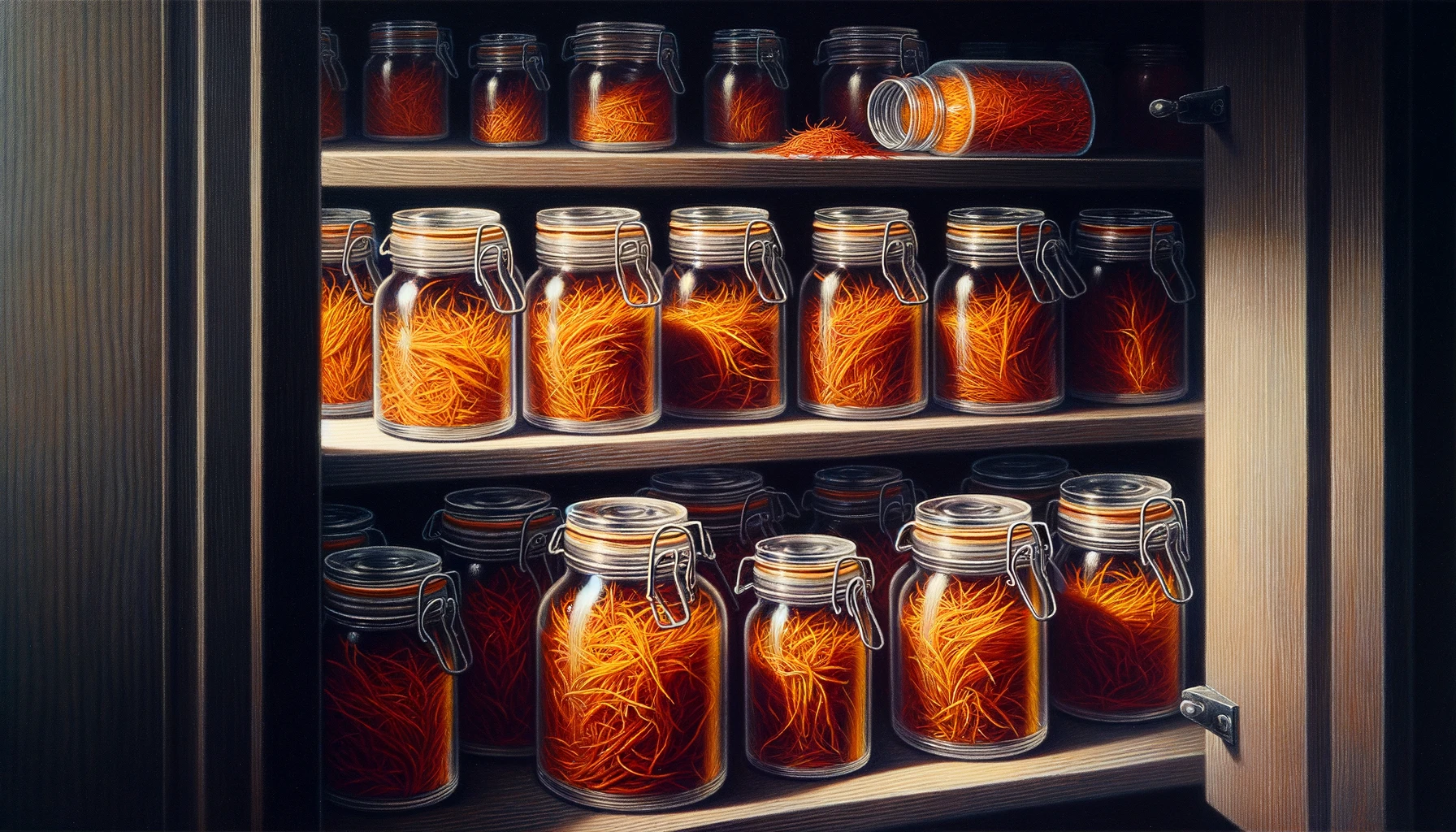Saffron, known for its vibrant color and distinct flavor, is a precious spice that requires careful handling and storage to maintain its quality and potency. Proper storage and care are essential to ensure that saffron retains its aromatic, culinary, and medicinal properties. This article provides comprehensive guidance on how to store and care for your saffron, ensuring that every thread remains as flavorful and effective as the day it was harvested.
The first step in caring for saffron is understanding its delicate nature. Saffron’s quality is influenced by exposure to light, air, moisture, and temperature. To preserve saffron’s intense color and rich flavor, it must be stored correctly. The ideal storage condition for saffron is in a cool, dark, and dry place. Exposure to direct sunlight or high temperatures can degrade saffron’s quality by dissipating its essential oils and vibrant color.

The best way to store saffron is in an airtight container made of a non-reactive material such as glass or ceramic. Plastic should be avoided as it can affect the flavor of the saffron. Once in its container, saffron should be kept in a cupboard or drawer away from light, heat, and humidity. This minimizes the risk of moisture getting into the saffron and causing mold or loss of flavor.
When handling saffron, ensure your hands are dry and clean. Moisture is one of the biggest enemies of saffron, as it can lead to mold and mildew, ruining the delicate threads. Each time you use saffron, take out only the amount needed and immediately close the container to limit the spice’s exposure to air and moisture.
To extend the shelf life of saffron, some people opt to store it in the refrigerator or even the freezer. If choosing this method, it’s crucial to ensure the saffron is in a completely airtight container to prevent any moisture from condensation. When you need to use the saffron, let the container come to room temperature before opening it to prevent condensation from forming inside.
In addition to physical storage, it’s essential to consider the shelf life of saffron. When stored properly, saffron can last for several years, with some claiming it can last indefinitely. However, over time, even well-stored saffron will gradually lose its potency. The spice does not spoil in the traditional sense, but it becomes less effective, meaning you might need to use more to achieve the desired flavor or color.
To care for your saffron, it’s also recommended to purchase it in small quantities. While it might be tempting to buy in bulk due to its high cost, saffron is best used fresh. Smaller quantities ensure that you can use it while it’s still at its peak of flavor and color.
Finally, consider the source of your saffron. High-quality saffron from reputable sources is less likely to be adulterated or of lower quality. Investing in good saffron not only ensures better flavor and health benefits but also means it will store better and last longer.
In conclusion, saffron is a valuable spice that, with the right care and storage, can enhance a wide range of dishes with its unique flavor and color. By understanding the factors that affect saffron’s quality and following the guidelines for storage and handling, you can ensure that your saffron remains potent and delicious for as long as possible. Whether you’re using it for its culinary delight or medicinal properties, proper care will make all the difference in preserving the essence of this precious spice.

